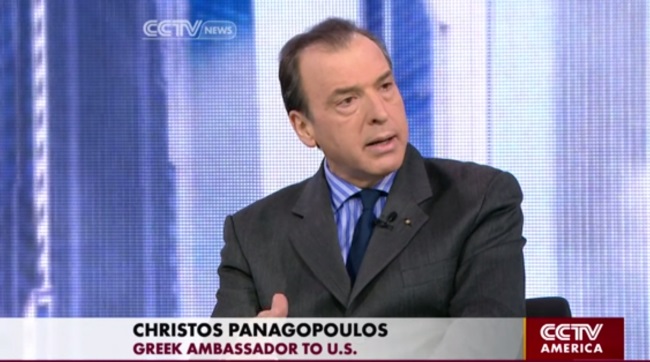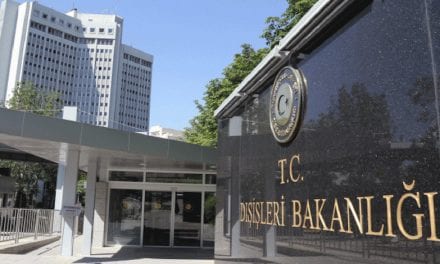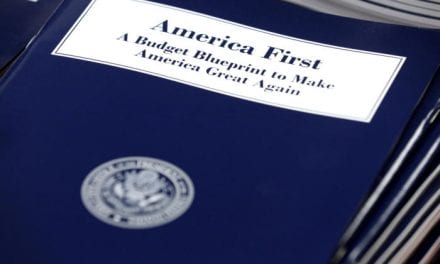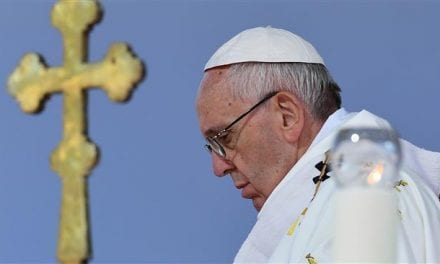By Guy Taylor- The Washington Times
The top Greek diplomat in Washington says his nation’s first budget surplus in more than a decade should go a long way toward persuading international creditors to ease up on some of the austerity measures that have been forced on Athens.
“For the very first time, we have learned to live with what we have,” Ambassador Christos P. Panagopoulos told The Washington Times in an interview in which he suggested Greece deserves some relief on the more than $300 billion in bailouts it has received since 2010.
The hope, Mr. Panagopoulos said, is that the “Troika” of European Union, European Central Bank and International Monetary Fund officials — who delivered the loans to Greece on the condition that Athens impose deep spending cuts and tax increases — will consider “rearranging the time” allowed for repaying the debt.
The ambassador, who made the comments during a wide-ranging conversation with The Times last week, also weighed in on the worrisome rise in Greece of a neo-Nazi political party and Athens’ view of the renewed peace talks on the long-divided island of Cyprus.
Mr. Panagopoulos downplayed claims by critics that the initial framework for the talks leans too heavily toward the creation of a Turkish Cypriot state, which could undermine Athens’ long-sought goal of unification on the island.
Athens, he said, is prepared to put its full weight behind the talks on the condition that the outcome is a single, unified Cypriot federation — even if that means two ethnically divided states.
The crisis in Cyprus, which has been divided since 1974 when Turkey invaded after a coup that sought to merge the island with Greece, has long disrupted international cooperation over energy extraction in the region.
If the talks succeed, many believe, the door could open for an Israeli-Turkish gas pipeline to peacefully cut across Cypriot waters.
With last month marking the start of Greece’s turn at the helm of the European Union’s rotating six-month presidency, Mr. Panagopoulos‘ comments on debt relief — a subject generally regarded as the most contentious issue between Greece and the rest of Europe — were equally pertinent.
Public resistance to the notion of offering debt relief to Greece is widespread within the continent’s wealthier and more powerful nations, such as Germany.
But, Mr. Panagopoulos said, there is reason to believe Greece’s 2013 primary budget surplus could change wider Europe’s posture toward Athens.
Greek Prime Minister Antonis Samaras announced the roughly $2 billion primary surplus — extra money Athens has on the books before paying the annual interest on its debt — in an interview over the weekend.
The surplus is nearly double the target set by Greece’s creditors.
Mr. Panagopoulos said the development should be weighed when considering whether to give Athens a break on its debt, which totals 175 percent of the nation’s gross domestic product.
“One approach would be, instead of 30 years to repay, making it 50 years to repay,” he said, adding that an equally positive development would be for creditors to lower interest rates on the loans. Officials representing Greece’s creditors are expected to visit Athens for a review this week.
Lowering the interest rates — what some bankers call “getting a haircut” — would effectively mean the more wealthy nations that provided loans would have to accept less repayment than promised.
It’s unlikely that such a “haircut” would happen before the European elections in May.
“We are not there yet,” said Mr. Panagopolos. “I think that there will be much discussion about all these things.”
With such uncertainties as a backdrop, Greece is focusing its EU presidency on a variety of themes, he said.
The most important, he said, is to “combat unemployment rates” that have remained dangerously high in several member states despite the wider European emergence from the global economic crisis.
“In some countries, including mine, the youth unemployment is 60 percent,” the ambassador said. “That’s something unimaginable for our American friends.”
Deep public frustration over joblessness, he said, has created fertile ground for extremist political groups.
In Greece, the phenomenon is manifested in the rise of “Golden Dawn,” an extreme-right political party with roots in the 1980s that has gained traction since the economic crisis of 2009.
The party, which has neo-Nazi roots and pushes a message of violent hostility toward immigrants, won nearly 7 percent of the popular vote in the nation’s 2012 parliamentary elections. It’s a situation that Mr. Panagopoulos said Washington should be aware of, but not worried about.
“We keep repeating to our American friends who are worried this is a phenomena connected directly to the economic, social crisis,” he said.
“I’m almost 60 years old,” he said. “I never met a Nazi in my country, a country that fought, with all its soul, fascism and the Nazis. In all societies there is a very insignificant group — let’s say 1 percent — that they adopt the Nazi ideology. In normal times, that would be insignificant, nobody cares about it. But in a period of extreme turmoil, social reaction and economic upheaval, these forces, they gain support. Not because there are more Nazis, but because of the frustration of the people toward the political system.”
“The sooner we go back to economic reconstruction and normalcy,” he said, “they’re going to disappear.”



















